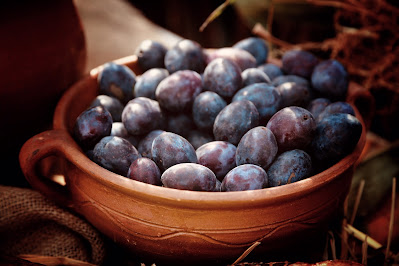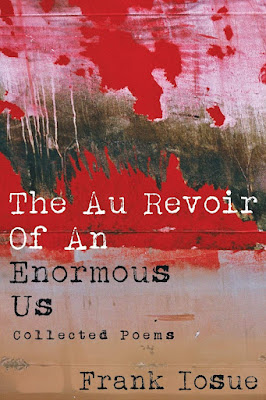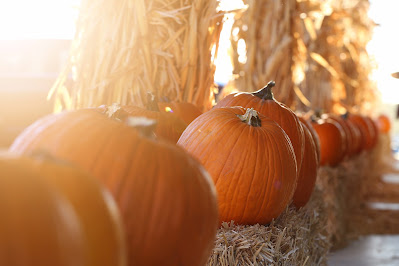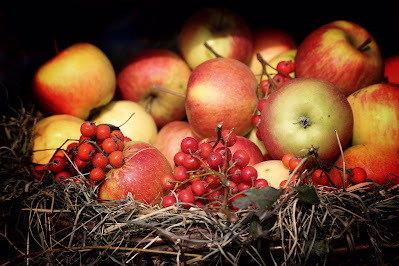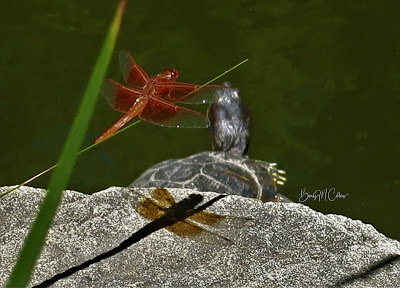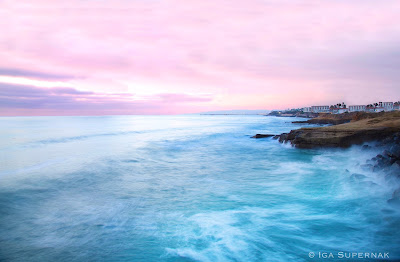California Quarterly, Volume 49, Number 4
Winter 2023, Edited by Maja Trochimczyk, Cover Art: Marsden Hartley
TABLE OF CONTENTS
Earthquake Weather — Madeleine Lamm 7
Holding On — Allegra Silberstein 8
Eating Poetry — rg cantalupo 9
The Irish Rain — Owen O’Sullivan 10
Outside, Tonight — Jane Stuart 10
Rain and Chopin — David Sapp 11
Beethoven’s Tuning Fork — Byron Beynon 12
During Music — Kathryn Howd Machan 12
In the Starry Dynamo — Ed Meek 14
Snowshoe — Allison Burris 15
Winters — Linden Van Vert 15
North — Madeleine Lamm 16
Northern Night — David Luisi 16
The Snow Lotus — Maja Trochimczyk 17
Unbelonging — C.M. Rivers 18
Learning to Pray — Carlo DiOrio 19
White Mountain — Dana J. Graef 20
Roadrunner’s Prayer — Bren Ohta 20
Dance on Wire — Beverly M. Collins 22
Wondering about God — Allegra Silberstein 23
Aurelius at the Pedro Point Car Park — David Rosenheim 24
The Night We Cried in the Theater — Allison Burris 25
Now — W. C. Gosnell 26
In Each Other, We Are the Complete Version of Ourselves — Phillip Jason 27
Black — rg cantalupo 28
Postcard — Madeleine Lamm 29
Slow Waves — Nicholas Skaldetvind 30
The Sea and I — Emilio Gomez 31
Sound Is the Ocean — Karin Charlotte 32
Beach Sand — Arlene Downing-Yaconelli 33
The Thousand of Precise Things — Vivian Underhill 34
Flight Pattern — C.M. Rivers 35
Moment of Contact — Emma Ashley 36
all the light I see — Susan Rogers 36
Tilt — Jennifer M Phillips 37
Tightening Laces — Iwo Drury 38
Road Story — Emma Ashley 39
My Mother’s — Abie Irabor 40
Just Like Mother — Maura Harvey 41
Child — Eliot Cardinaux 42
& The Song Goes On, Unsinging Everything — Eliot Cardinaux 43
Sunset — Mary Elliott 44
Quantum Entanglement — Mark G. Hammerschick 44
Waxing and Waning — Phillip Jason 46
Petition — Jayne Jaudon Ferrer 47
Dream — Marlene Hitt 48
A Collection of Dreams — Michael Fraley 48
Falling Snowdrops, Dancing Rain — Jane Stuart 49
The Night Heron — Jennifer M Phillips 50
Embroidery — Maura Harvey 51
Ascending — W.C. Gosnell 52
By the Incubator — Jane Stuart 53
Message — Alessio Zanelli 53
Winners of 36th Poetry Contest 54
180º Transitions Sharon Chmielarz 55
Old People are Such a Drag Claire Scott 56
Badassery Susan Wolbarst 57
Call Me Shahed Mark G. Hammerschick 59
Cover Art: Popocatepetl, Spirited Morning—Mexico by Marsden Hartley (1877-1943). Oil on board, 25x29 in. Smithsonian American Art Museum, Gift of Sam Rose and Julie Walters, 1932
Contributors in Alphabetical Order 60
CSPS Contest Opportunities 60
CSPS Newsbriefs 2023, No. 4 by Maja Trochimczyk 62
Publishing Opportunities with CSPS 65
2022 CSPS Donors, Patrons, and Membership 66
CSPS Membership Form 68
Popocatepetl, Spirited Morning—Mexico by Marsden Hartley (1877-1943). Oil on board, 25x29 in. Smithsonian American Art Museum, Gift of Sam Rose and Julie Walters, 1932
EDITOR'S NOTE
“O szyby deszcz dzwoni,
deszcz dzwoni jesienny
I pluszcze jednaki,
miarowy niezmienny...”
(Leopold Staff, Deszcz Jesienny)
In Leopold Staff’s poem I memorized at school, the onomatopoeia of “sh” and “ch” sounds (“sz” and “cz” in Polish) illustrates the sound of rain. I do not know how to translate it into English while keeping the sound, the rhythm, and the meaning intact. It is difficult to make transition from one language to the next…
Why do we love or hate rain? There are several rain poems in this issue—by serendipity, perhaps. In northern countries, when drizzle falls too often from gray, overcast skies, rain is associated with melancholy, sorrow, and depression (O’Sullivan, Sapp, and Beynon). It became a stereotype. Just think of Disney movies, when the heroine starts to cry…
In hot, desert countries, rain brings with it blessings of food, life, and love (Rosenheim, Skaldetvind, Stuart). What about snow, then? A blessing or a curse, depending on how much snow falls, for how long. Under the northern lights, it is a view to behold (Luisi). In Chinese movies snowflakes caught in lovers’ hands signify the abundance of affection. In northern countries, we have the “White Christmas” – though the event giving rise to this holiday took place in the desert, under a palm tree.
What matters is the celebration of “now” – as in the poem by W.C. Gosnell, or The Night Heron by Jennifer M Phillips: “Open your fist. There is nothing to grasp.” Phillip Jason wisely advises the reader that all experiences are meant to “turn you into good.” Yes, we should cherish our days “without thorns” (Jane Stuart), when stars blink in Morse Code that “nothing is over” (Zanelli) and angels make “you sing / And sing and sing / Like a joyful child.”
During winter holidays, whether skiing, cooking, or wrapping gifts, we become like children, engrossed in the moment, watching a blue balloon, “rising into a sky” (Machan). If we cannot let go of sorrow, we may find solace in dreams (Hitt, Fraley), or prayer (Silberstein, DiOrio). Per Quantum Entanglement (Hammerschick), we are all One, anyway…
In addition to poems that moved me, this issue presents the winners of the 36th Annual Poetry Contest. It is clear that the taste of the Contest Judge, Anna Maria Mickiewicz, is markedly different from mine. This diversity is a gift to be cherished.
Maja Trochimczyk California Quarterly
Los Angeles, California Volume 49, Number 4
Marsden Hartley, Yliaster (Paracelsus), 1932, oil on paperboard mounted on particleboard, 25 1⁄4 x 28 1⁄2 in. (64.1 x 72.4 cm.), Smithsonian American Art Museum, Museum purchase made possible by the Smithsonian Institution Collections Acquisition Program and by George Frederick Watts and Mrs. James Lowndes, 1988.53
CSPS NEWSBRIEFS 2023, NO. 4, WINTER 2023*
We are pleased to present the four winners of the 2023 Annual Contest, poems by Sharon Chmielarz (first prize), Susan Wolbarst and Claire Scott (two equivalent second prizes) and Mark G. Hammerschick (third prize). Two Honorary Mentions are by Mark G. Hammerschick and rg cantalupo, These have also been placed in this issue. Other Honorary Mentions will be published in the next CQ in the spring (Claire Scott, Christine Horner, rg cantalupo), and in the Poetry Letter (Gurupreet K. Khalsa). The final of these poems is too long for publication in the CQ, exceeding its allowable line limits. Congratulations to all the winners! The awarded poems were selected by the contest judge Anna Maria Mickiewicz of London, England from nearly 200 submissions. She liked the quality of the submitted poems so much that she thought it would be good to publish more than just a few in an anthology. Thank you, Ms. Mickiewicz, for your hard work, and special thanks to all the poets who submitted their work. I included some of these submissions in this CQ as well.
FIRST PRIZE: "180º Transitions" by Sharon Chmielarz
TWO EQUIVALENT SECOND PRIZES, in no particular order:
"Old People are Such a Drag" by Claire Scott
"Badassery" by Susan Wolbarst
THIRD PRIZE: "Call me Shahed" by Mark G. Hammerschick
HONORARY MENTIONS
1. “God is Depressed Again” by Claire Scott
2. “Wandering Brume to Sparks” by Gurupreet K. Khalsa
3. “Quantum Entanglement” by Mark G. Hammerschick
4. “About Spring” by Christine Horner
5. “Black” by rg cantalupo
6. “Einstein” by rg cantalupo
In
2023, the CSPS holds its Elections of Officers. The results will not be
known before the printing of this journal. I am glad that all currently serving
officers agreed to extend their terms. Thank you very much for your service and
multiple contributions to the Society.
The candidates for officers are as follows: Maja Trochimczyk
(President), Richard Modiano (Vice President, Communications), Richard Deets
(Vice President, Membership), John F. Harrell (Treasurer), and Ambika Talwar
(Secretary). Ballots were sent out and
are now being collected.
Meanwhile our Editorial Board of the California Quarterly has changed. Maura Harvey resigned from her role as Editor while remaining on the CSPS Board as a Director. She is focusing on publication of a book of her poetry and art. We are truly grateful for her many years of service. In her place, Nicholas Skaldetvind joined the Editorial Board after serving as Guest Editor for CQ 49:3. Paul Schreiber commented: “I was impressed with the wonderful weave of local, Californian, subjects and wide-reaching international voices. Themes and poetic forms ranged impressively so that I felt like I was speaking with a truly vital colloquy of fellow poet-travelers.” Anthony Caleshu observed: “Nicholas Skaldetvind has put together an issue which captures our zeitgeist, an international collection of poets from across the US and Europe which ‘places’ poems in each author’s location (if only for the writing of the poem); it ties our geography to our humanity in unique ways.” John F. Harrell commented about the Quarterly: “Outstanding issue! It's good to see the next generation of poets achieving such high quality in their work.” Ambika Talwar praised the Guest Editor: “I appreciate his experience, scholarship, and maturity.”
For the Spring 2024 issue, the Board approved Beverly M. Collins as Guest Editor. This volunteering position means quite a serious time commitment. The Editor is solely responsible for selecting and arranging poems, communications with poets, and providing the Managing Editor with the draft journal, accompanied by lists of addresses and emails for all poets so they can be notified and receive their printed copies.
The editors of the California Quarterly Volume 49 nominated the following poems and poets to Pushcart Prize for Best of the Small Presses 2023. From No. 1: “In the Kaleidoscope of Forgotten Things” by Dianne DeCillis and “Passion” by Livingston Rossmoor. From No. 2: “The Silence of the Common Nighthawk” by John Schneider. From No. 3: “Isolation Songs” by Karla Kelsey and Anamnesis by Anthony Caleshu. From No: 4: “Quantum Entanglement” by Mark G. Hammerschick. We are grateful to have so many astounding poems to select from.
The CSPS Board of Directors voted to increase the CSPS Membership Dues for 2024: Individual Membership (Domestic) from $40 to $45 and Individual Membership (International) from $60 to $65. At the same time, the institutional dues remained unchanged. This is to account for recent increases in the costs of printing and shipping the journal.
The Poetry
Letter No. 3 of 2023 featured poems of Alice Pero, Chair of
Monthly Poetry Contests since 2020; Nicholas Skaldetvind, who
guest-edited the Fall 2023 issue of the CQ and was invited to join the CQ
Editorial Board; Frank Iosue, who served as the Judge for our 2022
Annual Poetry Contest, and Beverly M. Collins. Three book reviews
presented Distance by Deborah P Kolodji and Mariko Kitakubo
(reviewed by William Scott Galasso) and Shimmer: An Ekphrastic
Poetry Collection by Paulette Demers Turco, reviewed by Michael Escoubas,
who also reviewed Gathering Sunlight by Silvia Scheibli &
Patty Dickson Pieczka. Our illustrators were photographers Beverly M.
Collins (whom we know as a poet often published in the CQ and elsewhere),
and Iga Supernak, both based in the Los Angeles area.
CSPS Member News. As Poet Laureate of Sunland/Tujunga Alice Pero was asked by Artists for a Better World to write a poem for the First Responders which she presented to police and firefighters on The National Night Out. She also read for the McGroarty Arts Center 100th Anniversary. In October, Alice received an award from Toast Masters for her service to the community.
Poets and artists, Beverly M. Collins and Ambika Talwar were recently featured at Village Poets Monthly Readings at Bolton Hall Museum in Tujunga. Poet, real estate broker and survivor, Ed Rosenthal, who was rescued after over six days of being lost in the desert, was recently interviewed by BBC Outlook and NOISER podcasts in the U.K. He wrote Salvation Canyon: A True Story of Desert Survival in Joshua Tree and a volume of poems inspired by his ordeal, The Desert Hat.
Maja Trochimczyk published a
series of haiku in the 2023 anthology of Southern California Haiku Study Group,
entitled A Taste of Sunlight and edited by CSPS member, Kath Abela
Wilson. The anthology featured several other CSPS members: William Scott
Galasso, Deborah P Kolodji, and Ambika Talwar. Trochimczyk’s “A Chromosome Ballad," appeared
in Academic Questions, Spring 2023. She also wrote a 428-page history
book, Celebrating Modjeska in California: A History of the Helena Modjeska
Art & Culture Club, supported with a grant from the Polish government.
Blueberry Highway, Dogtown by Marsden Hartley, 1931, High Museum of Art. Wikimedia Commons.
.jpg)


_opt.jpg)

